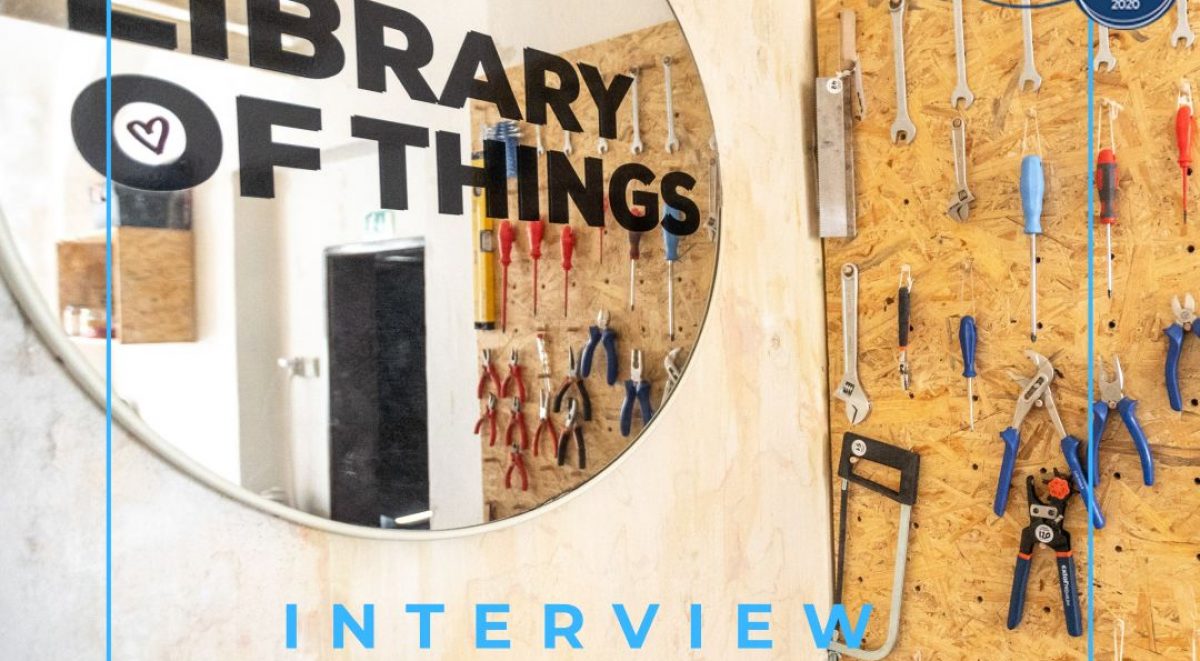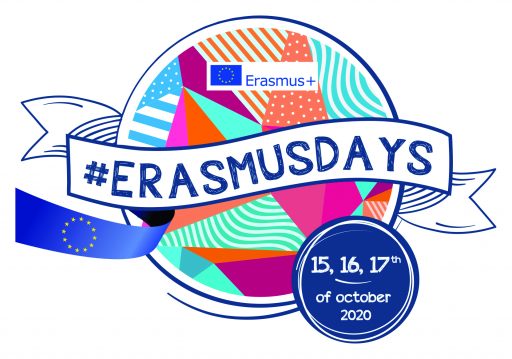
Meet one of the most sustainable businesses in Prague, the Library of Things! Here, you can borrow items rather than buying them. A way to save space, money and avoid unnecessary production and consumption. The team is also involved in organising workshops and other exciting activities to promote a sustainable lifestyle.
Who is the Library of Things team? Can you tell us a bit about yourself?

We are a team of few young people from the Czech Republic with different backgrounds, different lifestyles, different interests but one thing connects us – we are interested in ecological / zero waste activities and running the project Library of Things.
How did you come up with the idea of the Library of Things? And how does it work?
Our founder Petr Žabka shared on his social media a video about Libraries of Things in the world in January 2017. Few months later we opened the Library in Kampus Hybernská. It is one of the oldest projects based in Kampus: the Kampus itself started around April 2017 and went from a small university project into something extraordinary. It’s truly a unique and inspiring place connecting people and projects. It is a normal library but we don’t lend you books – you can borrow things. How? It’s easy:
1) Make a reservation on an item in our online catalogue.
2) Come to the Library, pay a small fee and refundable deposit.
3) Enjoy the item!
4) Return it to us.
We also organize workshops. You can create your own barefoot sandals, beeswax wraps etc. We also organize clothes swaps and we collaborate with other projects in Kampus Hybernská. The project itself is running on help from volunteers.
When it comes to fighting against overconsumption and promoting the culture of sharing, what is the difference between buying second-hands in a thrift shop and borrowing items at The Library of Things? Why should people choose the latter option?

Your decision depends on which items you are going to use and for how long. If you need a screwdriver one time a year – it is definitely better to borrow it. But if you are going to use an item frequently, I would
consider buying it. It is not a sin to buy new stuff if you honestly consider that you are going to use it and you think of the reasons why it is good to buy it new. But of course, if there is a second-hand reasonable item to buy, we would suggest it rather than buying a new one.
We also try to get items from “second hands”, usually people bring us items they don’t use anymore. Few times we decided to buy completely new things – if I remember correctly one of them was a car fridge.
If you borrow an item from our Library you will save your space, money and the item will be used until it’s time to say goodbye to it. It is known that the average power drill is used for somewhere between six and twenty minutes in its entire lifetime.
Which is the biggest challenge you have faced (or you are facing) since setting up this no-profit organization?
Definitely a transition from a small project based on volunteers into a professional service with given time and money limits. It just takes more time. On the other hand, fun and the learning process when starting a project besides our studies and jobs has been very valuable.
Which kind of reactions/feedbacks have the Library of Things received?

We receive mostly positive feedbacks. People are usually very excited about the idea. We had some troubles with our items, but most people who come to our Library are very nice and so we had no problem with resolving such issues.
In your opinion, which role do youth play in raising awareness about environmental issues?
Younger people tend to be more idealistic and full of energy when it comes to fighting for what they believe. Almost everybody knows the name Greta Thunberg and what she’s fighting for. Even though many
people don’t like her, you can’t say she didn’t raise awareness about environmental issues. It may inspire other people to start little by little and they may end up saving our planet. Young people have that
energy and I think that sometimes it may seem naive but we need to support them in their idealistic activities. Many young people start amazing projects or come up with great ideas that can help our planet to be “greener”. And all that energy and ideas from youth is important just like knowledge of older wise people.
Looking back at when you started the movement, is there something you would do differently?

We would have found a project coordinator with a lot of time and enthusiasm who would take responsibility for the whole project. We always had a project coordinator and founders but the problem was that we wanted to have a continuous service which would improve and grow but we did not have time for that as we had other
commitments. Volunteers can have little allocation for the project but a project leader needs to give as much time as the project needs.
What’s next for you and the Library of Things?
We want to find what may be our“post covid“ service – for example if we won’t be able to organise workshops. And find a way how to transition the Library into an ecological hub with our community.Also we would like to find some more fun and useful items and renovate our interior – recently one of our members (and also co founder) Tom Zahrádka and his friend Daniel Plavecký painted our Library’s window.
Which advice would you give to the young people like you who want to be more active in environmental protection?
Just do it! It is amazing to talk about it, attend or organize conferences, inform the public but also it’s good to get involved in environmental activities that actually make a difference right away – for example Trash Hero in your town.
But don’t feel pressured to be 100% zero-waste and ecological all the time. Sometimes you just can’t and that’s completely okay. And finally, do not feel you need to establish a school in Africa or solve world’s problems. Look around and see where you can help in your environment. For example, you can join our Library if you are
interested in it!
Thanks a lot to the Library of Things for taking part in this interview! It has been very interesting to discuss the theme of sharing and circular economy with the team! I’m sure, you will inspire many young people to take a step into being more sustainable! Thanks for reassuring us that is okay not to achieve all the time a
lifestyle based on ecological choices and zero waste! I think that the most relevant point is to be conscious about the lifecycle of the products that you’re choosing: consider the whole steps of the value chain (not only the finished product that you have in front of you but also its production and disposal at the end of life – is it polluting to produce it? Is it going to be possible to recycle?) and bear in mind that there are greener alternatives!
Thanks again!
Martina Forbicini
Don´t forget to follow The Library of Things Prague on social media
Facebook
Instagram
The Library of Things Catalogue
Website

